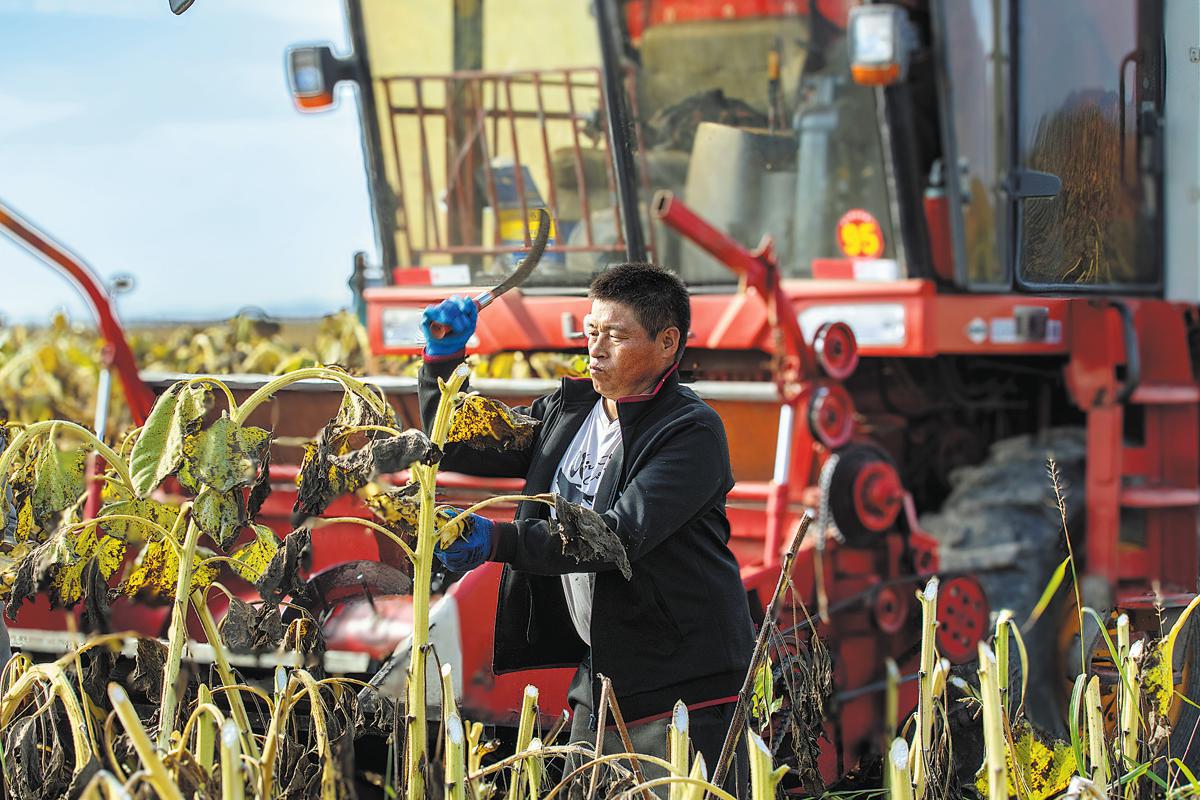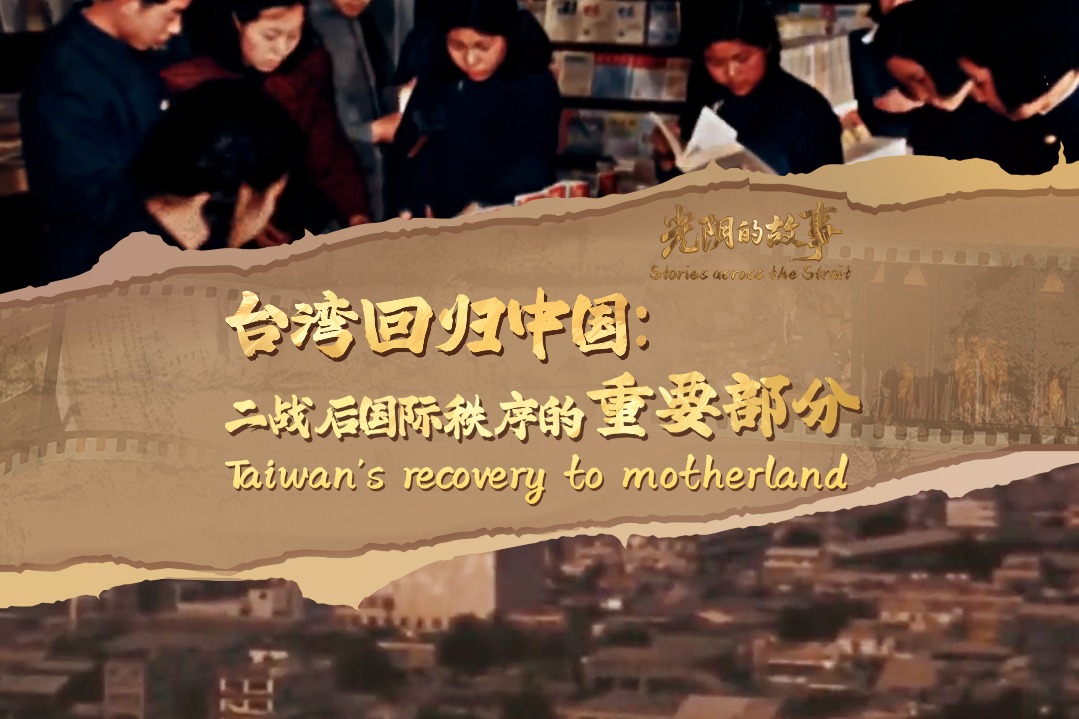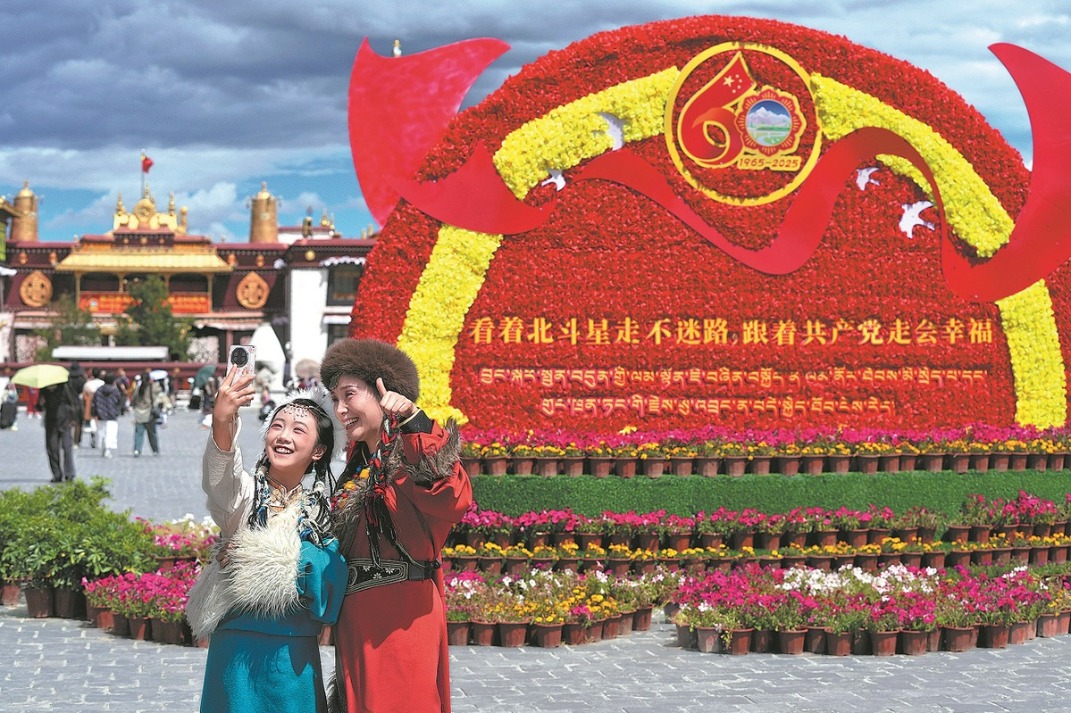Inner Mongolian sunflower seeds shine bright in global marketplace


HOHHOT — At 57, Wang Fei is hailed as the "King of Sunflower Seeds" in his hometown of Bayannuur, in the Inner Mongolia autonomous region.
The title reflects not only his passion for the crunchy nut but also his remarkable achievement in transforming locally grown sunflower kernels into a global commodity, with markets spanning the Republic of Korea, Egypt and Germany.
If you enjoy eating sunflower seeds, there's a good chance they originated from the saline-alkali fields of Bayannuur — China's largest base for edible sunflower production. Last year alone, the region produced more than 940,000 metric tons of sunflowers, with exports spanning over 40 countries and regions. Wang is one of the local farmers who have leveraged the booming sunflower industry to become a successful entrepreneur.
Challenging land
Bayannuur was once burdened by saline-alkali land, where traditional crops such as wheat and corn struggled to grow. The introduction of sunflowers in the 1970s marked a turning point for the city.
With its distinct seasons, abundant sunshine, vast plains and ample water resources, Bayannuur offered an environment strikingly similar to the sunflower's native habitat in North America, making it an ideal setting for this resilient crop, according to vice-mayor Zhang Ruhong.
In the 1980s, Wang began cultivating sunflowers on his family's saline-alkali land. "They are resistant to salt and alkali, drought-tolerant and easy to grow," he said.
By 2024, Bayannuur's sunflower planting area represented nearly half of the country's total. The city's sunflower industry has flourished into a comprehensive value chain, encompassing seed sales, cultivation, processing, exports, e-commerce logistics and even tourism.
Sunflowers are the world's fourth-largest oilseed crop, following soybeans, rapeseed and peanuts, said Zhang Haiyang, an oilseed industry expert.
He noted that sunflowers have gained prominence as a key specialty oilseed crop in China, particularly in northern regions, thanks to their high nutritional and aesthetic value.
The sunflower seed market was valued at $32.3 billion in 2023 and is projected to grow at a compound annual growth rate of around 9.4 percent between 2024 and 2032, according to Global Market Insights, a market research and management consulting firm.
To take Bayannuur's sunflower industry to new heights, local agricultural scientists have successfully introduced high-quality seed varieties, as well as a resistant strain specially designed to combat broomrape, a parasitic plant that has long plagued sunflower production.
Tiny seeds, big journey
In the run-up to Spring Festival, the factories of Bayannuur buzzed with activity as machines roared and workers hustled to sort sunflower seeds for export.
"We wanted to complete and ship all orders abroad," said Zhao Lei, general manager of Bayannuur Rong Da Company. "Our sunflower seeds saw strong overseas demand last year, with exports reaching 35,000 tons."
Across China, many regions have cultivated industries tailored to their local conditions. For instance, oranges from Ganzhou in Jiangxi province and strawberries from Dandong in Liaoning province have become key drivers of social and economic development.
Bayannuur has also leveraged its local strengths, establishing 120 leading sunflower processing enterprises to seize market opportunities.
Wang Fei, who began trading sunflower seeds domestically in 1987, ventured into the international market in 2012. Last year, his company, Mintai Agricultural Trading, recorded operating revenues exceeding $97 million, with exports making up the bulk.
"In China, people love eating sunflower seeds during festivals. Foreigners share this habit as well. Holidays like Christmas mark our peak export seasons," Wang said, adding that the holiday economy strongly stimulates consumption.
Over the past two years, Bayannuur has implemented innovative strategies to promote exports, such as fostering leading companies to establish overseas warehouses, advancing cross-border e-commerce, and streamlining customs clearance processes.
Challenges like rising shipping costs have also driven adaptability. Last year, Wang began shifting some shipments from sea to land transport, exporting sunflower seeds to Europe via China-Europe freight trains, significantly reducing costs. "My goal this year is to expand my sunflower seed exports into the Spanish market," he said with a smile.
Xinhua
























